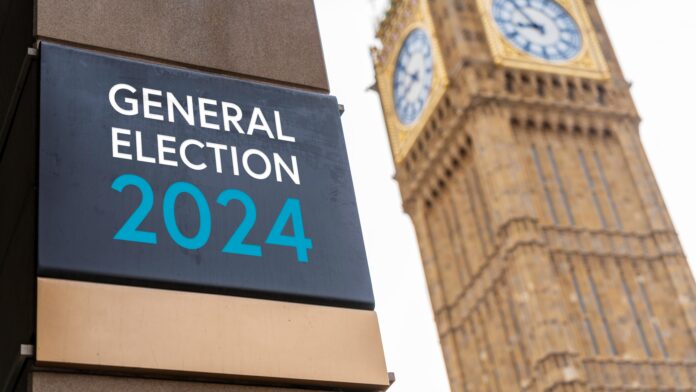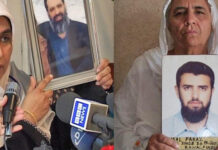Despite the enthusiasm gripping our community over the “Muslim vote” campaign, activist Abdul Wahid warns Muslims about the dangers of hitching our wagon to Establishment politics which is inherently stacked against us.
Over the past several months, during the aggression on Palestine, Muslims in the UK have distanced themselves from mainstream political parties like Labour and the Conservatives like never before.
After initial proposals made by some to boycott the system, a significant body of Muslim opinion fell upon the idea of protest voting by boycotting parties that have supported genocide, and promoting either independent candidates or smaller parties.
This raises important questions about Muslim politics in the West: whether participating in conventional politics can bring about the desired solution for Palestine, and how to have an effective voice.
The Establishment offers limited choice
It’s not too strong a statement to say that in mature democracies, whoever you vote for, the “system” wins. And it’s that “system” that has been supporting the slaughter and ethnic cleansing in Gaza.
About a century ago, the poet Hilaire Belloc (1870-1953) wrote a poem about the UK general election at the time:
Subscribe to our newsletter and stay updated on the latest news and updates from around the Muslim world!
The accursèd power which stands on Privilege
(And goes with Women, and Champagne and Bridge)
Broke — and Democracy resumed her reign:
(Which goes with Bridge, and Women and Champagne).
Belloc’s message might be summarised as: whoever you vote for in a democracy, the system – which supports the decadent luxuries of the elites – always wins.
That message rings true a century later. The choice between Sunak’s Conservative Party and Starmer’s Labour Party is not a choice between radical alternatives. Just as in the USA, it is a Blue capitalist, secular, pro-Zionist establishment party versus a Red capitalist, secular, pro-Zionist establishment party.
In Britain it is the Blue party that has governed the longest. The Red one provides periods of cosmetic, not substantial, change. When public frustration grows, the system protects itself by switching between the Establishment parties.
The system protects its red lines
Even when some of the policy details are different, the broad thrust of state policy remains the same.
There exists a paradigm that runs through all strands of political thought acceptable to the Establishment in any Western country: a separation of religion from politics (i.e. being secular); the supremacy of the nation state; the acceptance of some form of capitalist economic policy; liberal social norms of varying degrees; some form democratic political structure; pro-Zionist and generally interventionist or pro-colonial in foreign policy terms.
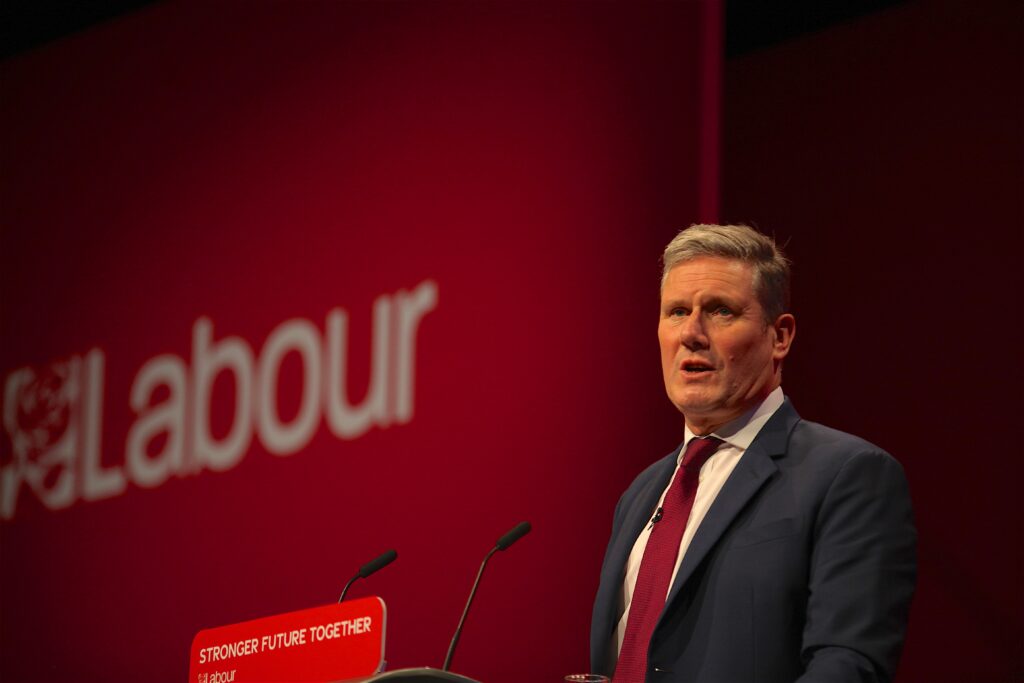
Editorial credit: Rupert Rivett / Shutterstock.com
These are all pillars of the political creed that dominates Western states, which any potential government is obliged to comply with. It would be virtually impossible for any politician or party to achieve real power if they opposed any one of these red lines of the state.
The political process moulds its politicians to fit the system, rather than allowing them to radically alter the system. Keir Starmer, Sadiq Khan and David Lammy have all conformed to what’s expected of an Establishment politician.
By contrast, Jeremy Corbyn is not pro-capitalist. Although he believed in a two-state solution, his commitment to the Zionist project in Palestine was not as strong as that of the British state. As a result he was ousted by his own party, who then installed Starmer who despite initially supporting Corbyn conformed to the Establishment template. Thus the party political system protected the political red lines of the state before there was any need for other measures.
This is not political pessimism but political realism. Understanding this explains many of the failures of UK Muslim political strategy over the past few decades.
Muslim politics in the West
The first generation of Muslims migrating to the UK built essential institutions like mosques, halal business, and Islamic educational establishments without much in the way of political assistance, professional qualifications, formal education or resources of any kind. They succeeded through strong principles, sacrifice and determination, and the help of Allah.
Over time some people (often with good intentions) engaged in the political system, thinking it would provide advantages as it appeared to have done for some other minority communities. Many felt the experience of the Jewish community was the role model to be copied.
Yet these Muslims found themselves immersed in a system that in 2024 is seen by many as broken, untrustworthy, characterised by scandals, backstabbing and expediency.
How many, if they had their time again, would swim in these shark-infested waters?
Earlier this year, I spoke to a former Labour councillor who described how he stood for a council seat to represent what mattered to him and his community. But after he was elected he said he held his tongue waiting for a better opportunity to arise to stand his ground. When he gained an office-bearing role in the council, again he held his tongue waiting for a better opportunity to arise to stand his ground – only to find that he never did. He said the man who started out on the journey wouldn’t like the man he became.
In October 2023, when the slaughter in Gaza began, he saw that his party was with the oppressors who have since slaughtered up to 40 000 innocent men, women and children – and displaced many more. Like many others, he found he had a choice between remaining loyal to his party or his principles. He was a decent man who chose the latter and resigned his seat.
A protest vote
Like several others realising the compromises entailed in British politics he has decided to stand as an independent – to use the system to make a statement against the establishment parties, or punish the incumbents, who had no shame in supporting those who appear to be perpetrating a genocide on their brothers and sisters, by trying to damage their chances of re-election.
In this respect, people like him have become wiser to the limits of the system than many others in the UK. They have seen how political engagement works against them at a systemic level.
It remains to be seen how effective this tactic will be, particularly with some of the key constituencies having multiple independent candidates dividing the opposition to the establishment parties – especially since the Labour Party has deep connections into the tribal networks in the Muslim community.
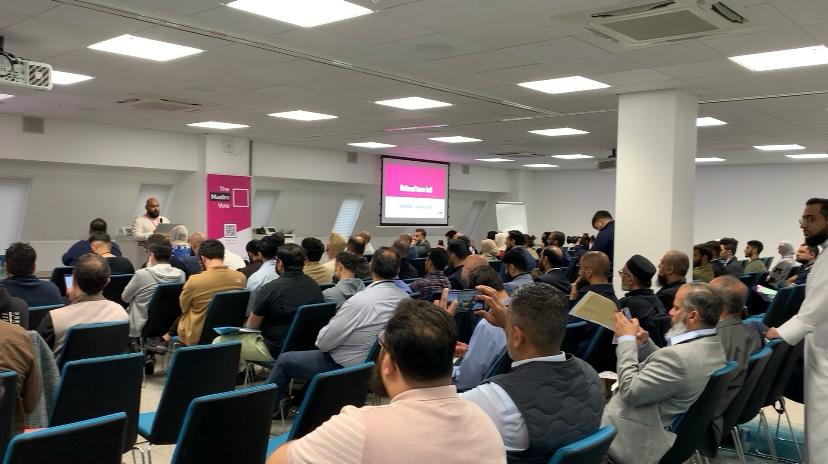
Independent candidates have been a norm in American elections – with Ralph Nader, Ross Perot and Lyndon Larouche all well-known names. Despite that, there has been no threat to the two-party system of the establishment. Rather, depending on which end of the political spectrum the vote is split, the fringe candidates usually just end up facilitating one of the Establishment candidates.
Spoiled ballot papers – preferably with a pro-Palestine slogan – would have been a better strategy, sending a signal to the pro-genocidal system not just to pro-genocide parties (it would also be quantifiable).
Sadly, none of these approaches would end the genocide. They would merely be an additional way to distance ourselves morally from the support the British state is giving to the occupation force.
Confusion, contradiction and compromise
Some want to believe the system can be made to work for them – occasionally even holding traditional Islamic views on sexual relations, opposing the pernicious Prevent agenda, and opposition to the occupation of Palestine. But they are either confused or all too willing to compromise. Some have political “battered-wife syndrome” – willing to stand up for parties that are seen to be overtly racist and Islamophobic.
But to seek representation in the very system (it is not merely the parties that are guilty but the political system itself) which has supported the slaughter in Gaza, facilitated arms being supplied to the occupier and a manner of other crimes around the world – is at best madness!
At worst it is to be complicit in that criminal system.
Gaza and the coming elections
For Muslims, these elections have become a division between those who want to voice protest about Gaza, and those who foolishly think there is something to be gained from the system.
Whilst the former group are clear that the Establishment parties are complicit in Gaza, we should all be clear that a “punch on the nose” for Establishment politics is not a solution for Palestine. Any rational person can see that a state-level military slaughter of a civilian population needs a state-level military intervention to rescue the people and end the occupation, and replace it with something better.
Palestine needs liberation from occupation. That can never come from colonial powers who created (from the time of the Balfour Declaration of 1917) and have sustained the problem. The architects of the Zionist occupation of Palestine were from Conservative, Liberal and Labour parties. The strongest supporters of the occupation until today have come from across the political spectrum.
A strong voice
I do not believe that Muslims should isolate themselves. We need to learn from the failed strategy of the past few decades and think as to how to develop a voice that cannot be bought or tamed – which operates outside the bounds of Establishment political participation.
Like the first-generation Muslims who built their community, it calls for activism free from compromise — where Muslims try to stand on their own two feet rather than begging for handouts. Then they can use their voice to stand by their principles without being influenced or bullied by the state.
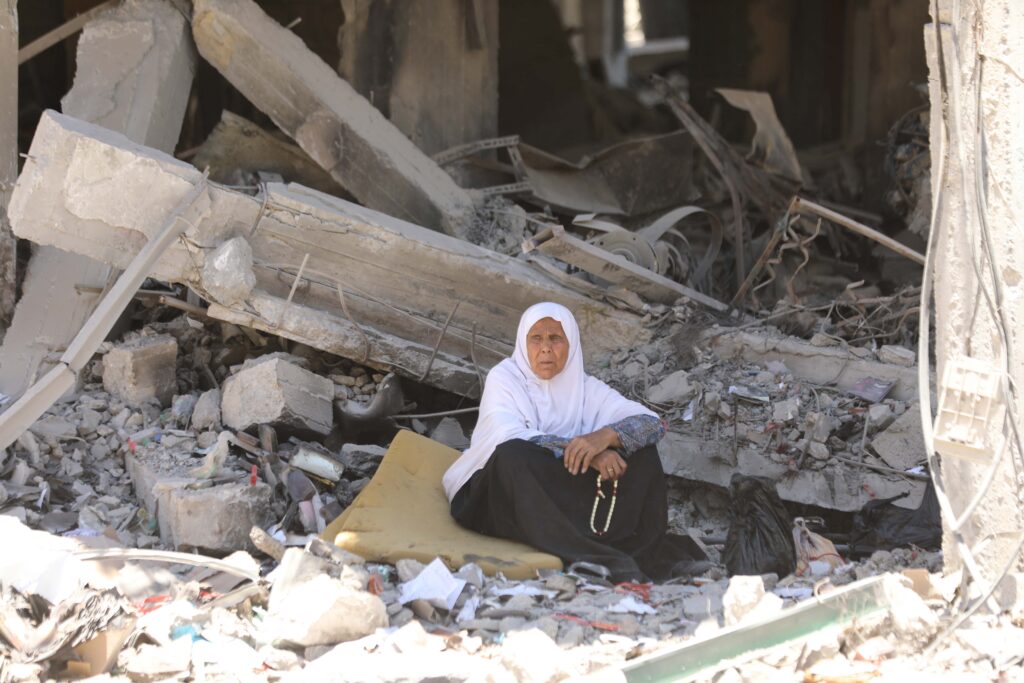
Protests in London, the students staging sit-ins, and the Muslim community advocating for liberation – particularly on social media – are examples of using that voice. They have not been silenced, despite government attempts to suppress them through arrests, restrictive legislation and threats to jobs.
The horrific situation in Palestine reflects a broader issue where subjugated people worldwide find themselves crushed within global political and economic systems that were never designed to serve their interests.
Whether in Sudan, Congo, Ethiopian, Syria, East Turkestan, Pakistan and beyond – ordinary people all are victims of a global system that some think should be engaged in, despite the fact that it perpetuates the problems rooted in colonial legacies via exploitative institutions. Without a fundamental shift in the way things operate, achieving justice and liberation will remain an elusive goal.
Islam offers that fundamental shift and civilisational alternative. But to articulate that effectively, one cannot keep investing maximum political effort and expending energy and working in a system that was never designed to deliver justice or liberation to the colonised and oppressed.
Abdul Wahid has been active in Muslim affairs in the UK for over 25 years. He has been published on the websites of Foreign Policy, Open Democracy, the Times Higher Educational Supplement, and Prospect Magazine. You can follow him on X/Twitter @AbdulWahid_X.






